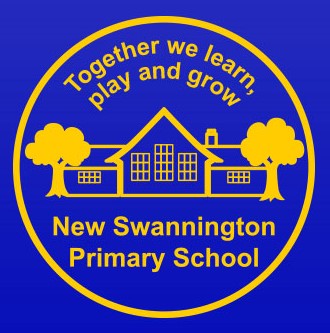SMSC Statement
At New Swannington Primary School we recognise that the personal development of children - spiritually, morally, socially and culturally (SMSC) - plays a significant role in their ability to learn and achieve. We therefore aim to provide an education that provides children with opportunities to explore and develop:
- Beliefs, religious or otherwise, which inform their perspective on life & their interest in & respect for different people’s feelings & values.
- A sense of enjoyment and fascination in learning about themselves, others and the world around them, including the intangible use of imagination and creativity in their learning a willingness to reflect on their experiences their own standards of personal behavior a positive, caring attitude towards other people an understanding of their social and cultural traditions.
We consciously facilitate opportunities in these four areas in the following ways:
Spritual Development
This refers to children’s:
- beliefs, religious or otherwise, which inform their perspective on life & their interest in & respect for different people’s feelings & values.
- a sense of enjoyment and fascination in learning about themselves, others and the world around them, including the intangible use of imagination and creativity in their learning willingness to reflect on their experiences.
This is developed by:
- Following a whole school Religious education scheme which ensures continuity and progression.
- Having an RE co-ordinator to oversee the curriculum delivery in school.
- Regular assemblies with a religious theme including visits from local churches who carry out themed assemblies on a regular basis which giving pupils the opportunity to explore values and beliefs, including religious beliefs and the way in which they impact on people’s lives.
- Giving pupils the opportunity to understand human emotions and feelings, the way they impact on people and how an understanding of them can be helpful; for example, through Literacy and Drama, Music and Dance.
- Each class being linked to a different religion or faith so that they can take part in religious visits or have religious visitors in to school.
- Developing a climate, or ethos, within which all pupils can grow and flourish, respect others and be respected; for example, valuing children’s contribution to the running of the school such as recognised school roles and responsibilities, active school council whose contribution is regularly celebrated and assemblies where we recognise children’s achievements.
Moral Development
This refers to children’s:
- Ability to recognise the difference between right and wrong and their readiness to apply this understanding in their own lives understanding of the consequences of their actions interest in investigating and offering reasoned views about moral and ethical issues.
This is developed by:
- Providing a clear moral code for behaviour which is promoted consistently through all aspects of the school; for example, Behaviour Policy; Class Charters;; Anti Bullying Week, E-Safety week.
- Promoting racial, religious and other forms of equality (Racial, Inclusion, Equal Opportunities, SEN policies).
- Giving pupils opportunities to explore and develop moral concepts and values throughout the curriculum; for example, truth, justice, equality of opportunity, right and wrong (through linked work with police officers, Fire safety officers, road safety officers and through the delivery of the SEAL programme).
- Developing an open and safe learning environment in which pupils can express their views and practise moral decision making (School council, Road Safety officers, House Captains, Class prefects, Wildlife garden carers, Safeguarding policy and practice).
- Rewarding expressions of moral insights and good behaviour (Celebration Assembly; class reward systems; house points, reward times).
- Modelling through the quality of relationships and interactions the principles we wish to promote; for example, fairness, integrity, respect for persons, pupil welfare, respect for minority interests, resolution of conflict keeping promises and contracts (whole school charity events; Celebration Assemblies. Support workers to help families in need).
Social Development
This refers to children’s:
- Use of a range of social skills in different contexts, including working and socialising with pupils from different religious, ethnic and socio-economic backgrounds.
- Willingness to participate in a variety of social settings, cooperating well with others and being able to resolve conflicts effectively.
- Interest in, and understanding of, the way communities and societies function at a variety of levels.
This is developed by:
- Fostering a sense of community with common, inclusive values.
- Promoting racial, religious and other forms of equality (Racial & Equal opportunities policies).
- Encouraging children to work co-operatively.
- Encouraging children to recognise and respect social differences and similarities; for example, where they live, different kinds of family models, age issues.
- Helping pupils develop personal qualities which are valued in society, for example, thoughtfulness, honesty, respect for differences, moral principles, independence, interdependence, self-respect.
- Providing opportunities to participate in the democratic process and participate in making community decisions (School Council; votes in class on a variety of issues; House Captain votes).
- Providing children with opportunities to exercise leadership and responsibility (Council Leaders, Class monitors; pupil librarians).
Cultural Development
This refers to children’s:
- Understanding and appreciation of the wide range of cultural influences that have shaped their own heritage.
- Willingness to participate in, and respond to, for example, artistic, musical, sporting, mathematical, technological, scientific and cultural opportunities.
- Interest in exploring, understanding of, and respect for cultural diversity and the extent to which they understand, accept, respect and celebrate diversity, as shown by their attitudes towards different religious, ethnic and socio-economic groups in the local, national and global communities.
This is developed by:
- Providing children with opportunities to explore their own cultural assumptions and values.
- Celebrating the attitudes, values and traditions of diverse cultures.
- Recognising and nurturing particular gifts and talents (watercolour group, school choir, sporting events, Y5 Arts festival, teaching children to play musical instruments at different times in their school career).
- Developing partnerships with outside agencies and individuals to extend pupil’s cultural awareness.
- Reinforcing the school’s cultural values through displays and photographs.
